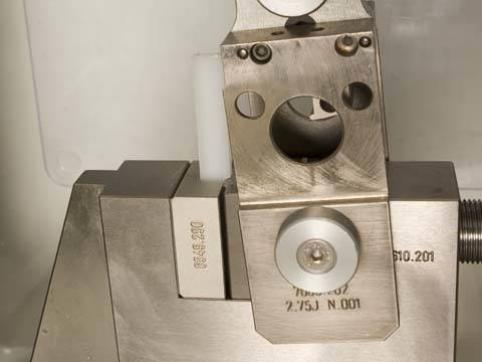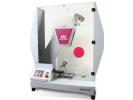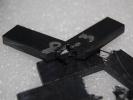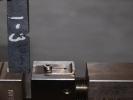ASTM D256: Izod Impact on Carbon/PPS Composites Made from Recycled Carbon Fiber
Polyphenylene Sulphide (PPS) is a semi-crystalline material and falls in the category of high temperature polymers with a melting point of 285ºC. Inherently PPS is brittle in nature and hence is often used in conjunction with fillers. Carbon fibers are found suitable to enhance the mechanical properties, especially the impact resistance of PPS. However due to the high cost of virgin carbon fiber composites, recycled carbon fibers seems to be a growing segment of the composites industry. The decommissioned aircraft, out of date prepregs and scraps from manufacture can be possibly counted on as a main source of the recycled carbon fibers.
Such PPS-Carbon fiber blends can be put to use in mass transit applications, automotive parts etc and hence the process-performance- properties such as Izod impact are critical parameters to researchers and industries. We used CEAST 9050 Impactor to do an Izod impact test on specimens made by extrusion-compression of PPS (powder matrix) and recycled carbon fiber blend (fiber lengths varied from 6.35 mm to 12.7 mm). These molded plaques were cut (3.17 mm x 10.16 mm) and notched as per ASTM D256 using CEAST automatic notching machine AN50. We used a 5.5 J pendulum hammer to impact the Carbon/PPS specimens conforming to ASTM D256.
The Izod impact results indicated energy absorption values in a range of 0.5 J to 3.50 J. The failure modes were repeatable and the fiber-matrix interactions were observed to be consistent. The Izod impact results seem to be sensitive to the fiber orientation developed in the processed plate as a result of the extrusion-compression molding process.
We would like to thank "The Materials Processing and Applications Development (MPAD) Center" of University of Alabama at Birmingham (UAB) for contributing part of the above information.
CEAST 9000 Series Pendulum Impact Series
Impact resilience is one of the most important properties and cost-effective evaluations for material producers, both with respect to product development and quality control. As components could fail at stress levels well below the critical fracture stress, accurate determination of impact damage propagation is necessary. With the combined experience of CEAST, Instron® has more than 50 years experience in designing pendulum impact testing systems.
- Produtos
- 09/12/2013
- 2.1 MB




